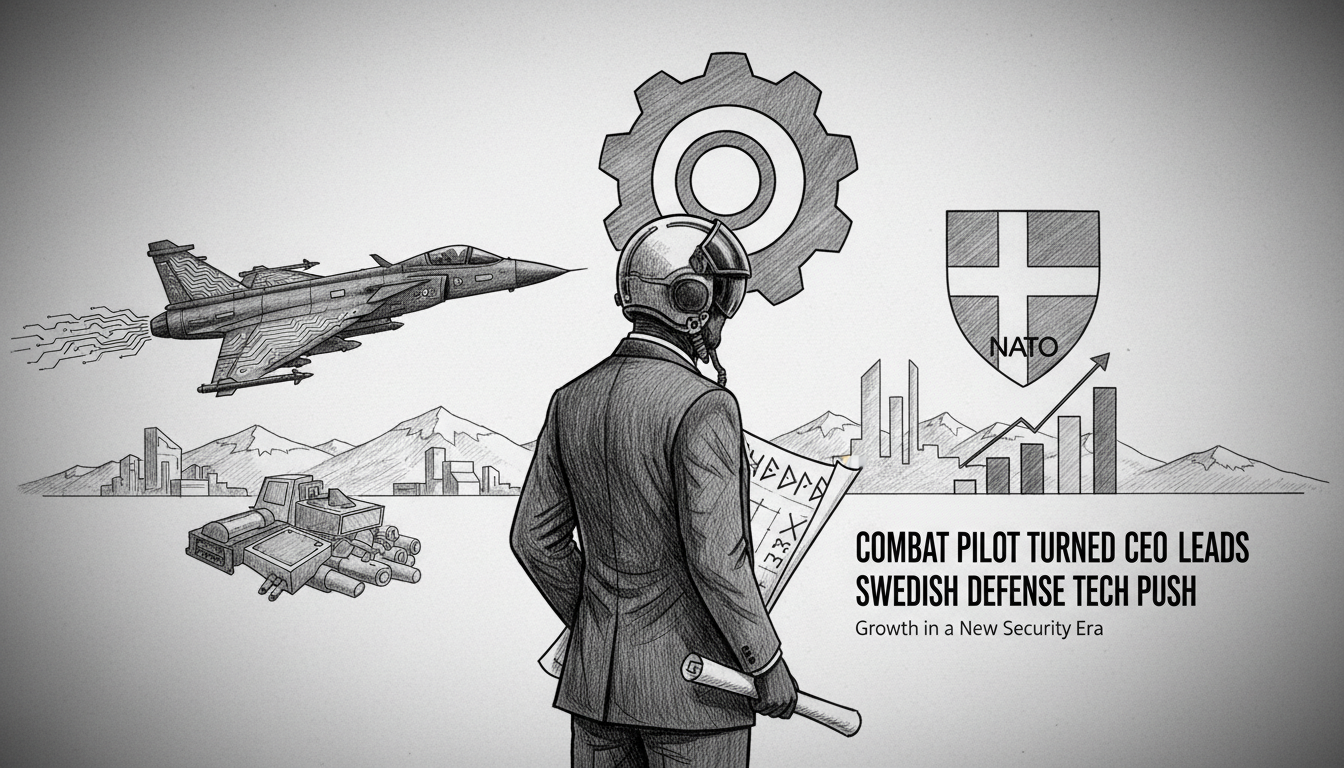A former Swedish fighter pilot now leads a technology company developing advanced systems for the country's military aircraft. The transition from cockpit to boardroom comes as Sweden experiences growing defense sector interest.
Small Swedish companies are positioning themselves within the nation's expanding defense industry. They develop everything from artificial intelligence systems for combat aircraft to specialized backpacks for infantry soldiers. Many hope to capitalize on increased defense spending and geopolitical shifts.
The view from Kista Science Tower provides an appropriate backdrop for this transformation. Avioniq, the IT company developing defense systems, operates from the 18th floor with what employees describe as an aerial perspective.
Four large model fighter planes hang from the office ceiling. They include a Swedish Gripen, a Eurofighter positioned near a flight simulator, and surprisingly, two Russian aircraft models. The collection features a Su-37 and a MiG-29, representing both allied and potential adversary technology.
Sweden's defense industry expansion reflects broader European security concerns. The country ended two centuries of military non-alignment by joining NATO earlier this year. This historic shift creates new opportunities for defense contractors and technology providers.
Small businesses face significant challenges despite increased interest. They compete against established global defense giants for government contracts. Many struggle with the lengthy procurement processes and strict certification requirements common in military acquisitions.
The Swedish government has committed substantial funding to modernize its armed forces. Recent budgets allocated billions to enhance air defense capabilities and strengthen military readiness. This creates potential customers for domestic technology providers.
Industry experts note that Swedish defense startups often bring innovative approaches. Their smaller size allows for faster development cycles and specialized solutions. Some focus on niche applications that larger companies might overlook.
The defense sector's growth impacts Sweden's broader technology ecosystem. Skills developed for military applications often transfer to commercial markets. This creates potential spillover benefits for the national economy.
Companies like Avioniq represent a new generation of Swedish defense technology firms. They combine military expertise with cutting-edge software development. Their success could determine whether Sweden maintains its position as a defense technology leader.
Current market conditions favor specialized technology providers. Geopolitical tensions drive increased defense spending across Europe. Sweden's NATO membership opens new export opportunities within the alliance.
Small companies still face an uphill battle against established competitors. The promised defense boom has been slower to materialize than many entrepreneurs anticipated. Contract awards often take years rather than months.
Sweden's defense industry transformation continues despite these challenges. The country balances its tradition of technological innovation with new security realities. Companies that successfully navigate this landscape could reap substantial rewards.
What does this mean for Sweden's economic future? Defense technology represents a potential growth sector with high-value exports. The country's engineering talent and historical military expertise provide competitive advantages.
The coming years will test whether Swedish defense startups can deliver on their promise. They must demonstrate reliability, innovation, and value to secure lasting positions in the market. Their success or failure will influence Sweden's broader industrial strategy.

